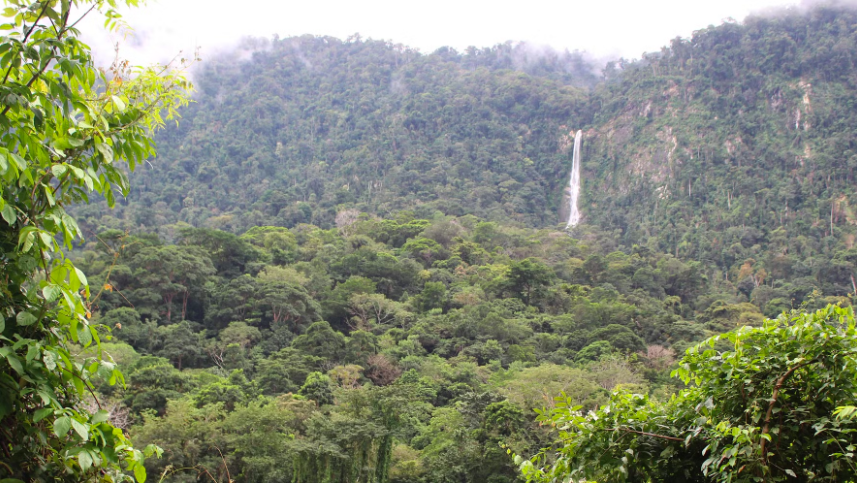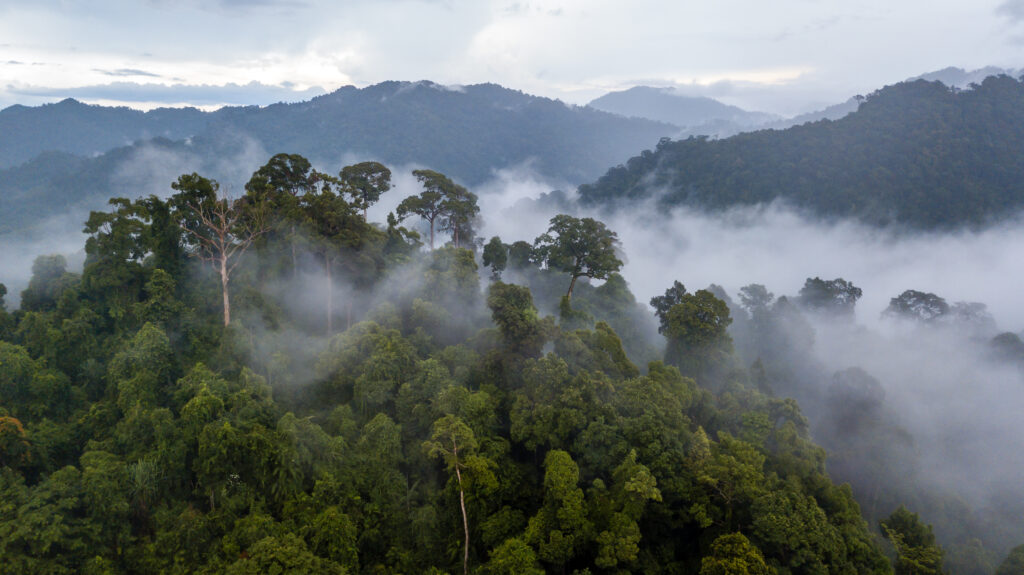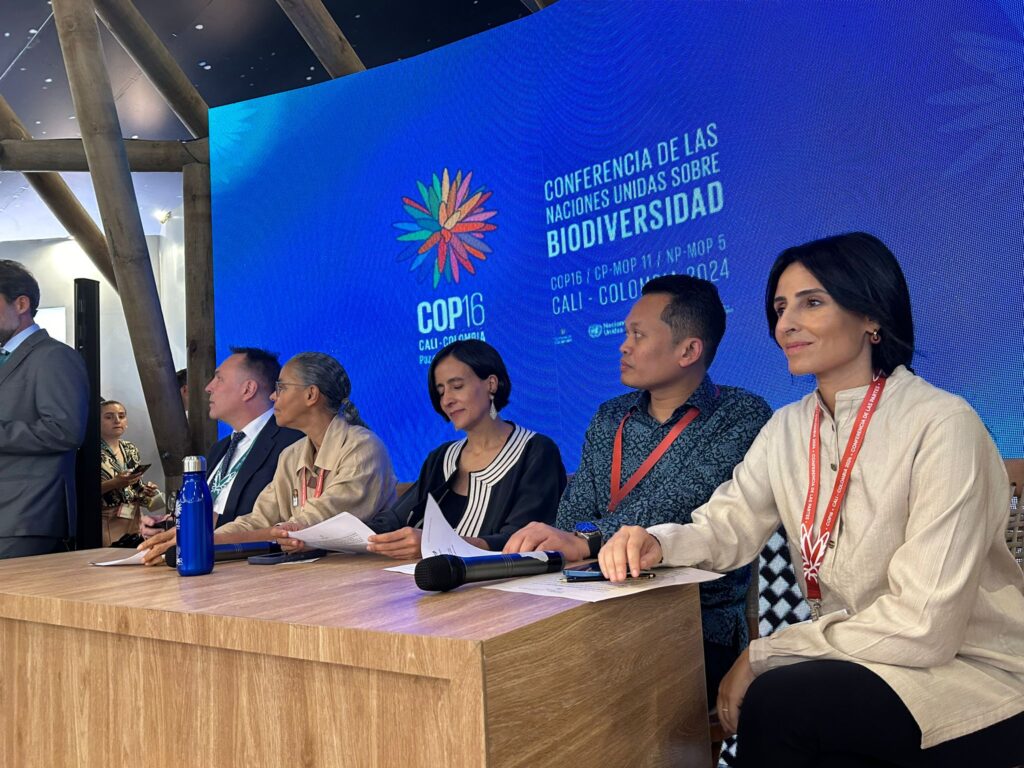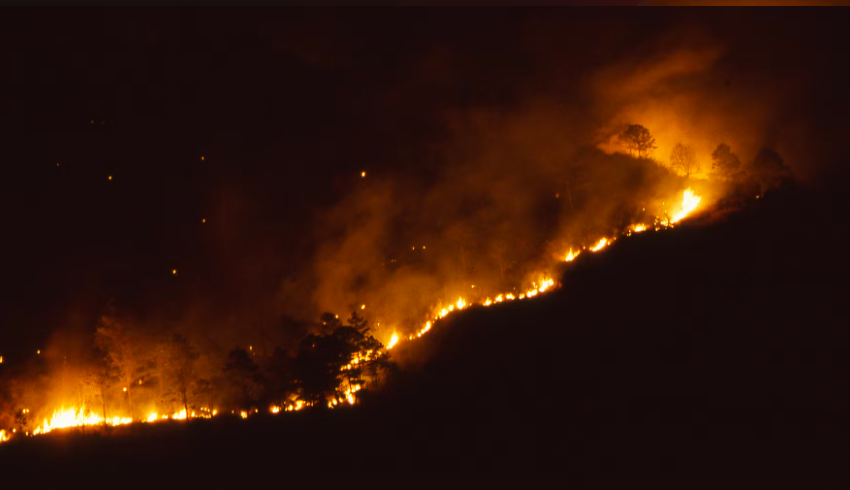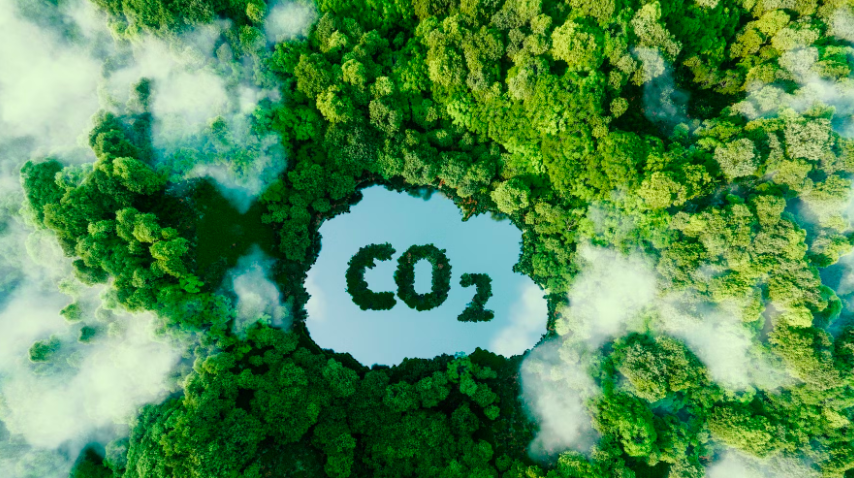Constitutionally protected rights were restricted, and the control over illegal encroachment in protected areas and indigenous peoples’ territories was halted, while illegal intruders were given free rein to fell trees. In response, Forests of the World, in collaboration with local partners, has increased efforts in Pico Bonito National Park to strengthen local communities and the alliances of indigenous peoples, empowering them to defend themselves, their rights, and the rainforest.
How can the COVID-19 pandemic still threaten the rainforest in Pico Bonito National Park in Honduras? While the COVID-19 pandemic is fortunately behind us, many of its consequences continue to haunt indigenous peoples, civil society, and the rainforests in Honduras. Under the cover of the pandemic, unconstitutional laws and regulations were implemented, which remain in effect today. These laws allow misleading terms like “inactive land” to describe rainforests, national parks, and indigenous peoples’ territories. This creates a constant threat to nature, as its value continues to be measured based on what it produces for the market.
During the pandemic, indigenous peoples often isolated themselves in their homes and villages, and authorities such as the police, who are tasked with ensuring that forests are not illegally cleared, also stayed at home. As a result, encroaching land thieves and resource hunters had free rein to illegally clear the forest.
The enacted regulations allow the clearing of forests for agriculture if the land can be classified as inactive. This is particularly threatening to indigenous peoples’ territories, many of which are not legally recognised. The excuse for these regulations was to ensure food security during the pandemic. However, this law has not been repealed, even though the pandemic is over.
Therefore, Forests of the World and the Pico Bonito National Park Foundation (FUPNAPIB) took action in 2021 and 2022 to support 12 indigenous Tolupan communities and civil society in five municipalities located in buffer zones around Pico Bonito National Park. The Tolupan people, like many other indigenous groups in Honduras, are poor and marginalised. The rainforest in Pico Bonito is a treasure trove of rich biodiversity, home to numerous species, and provides water to the surrounding area and the major city of La Ceiba. The work continues into 2023 with the local partner FOSDEH, with a particular focus on lobbying the authorities to highlight the serious situation promoted by the enacted law and to argue for its repeal.
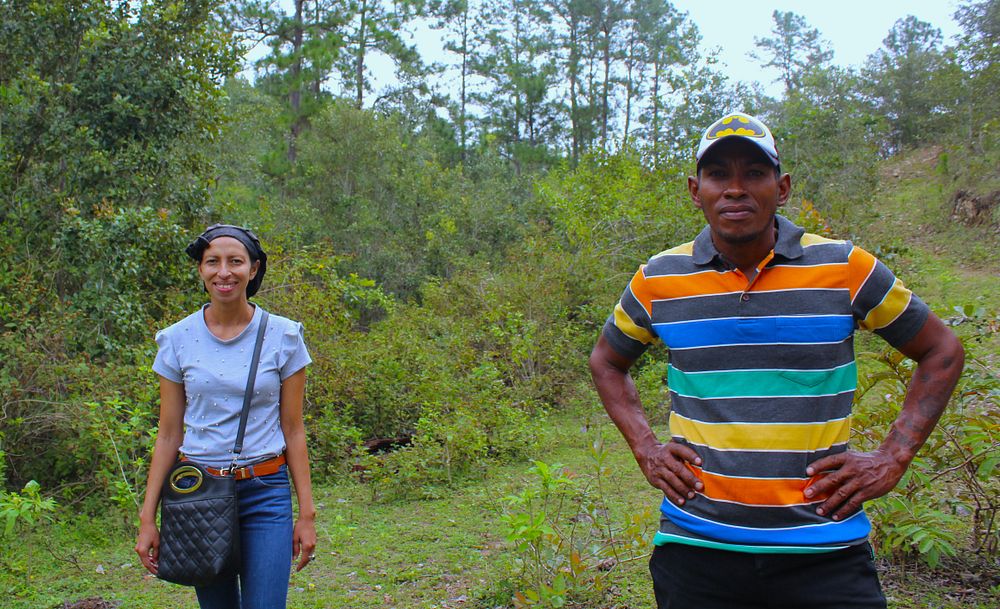
Strengthening Indigenous Peoples and Civil Society
To address the threats and pressures on the rainforest and the territories of indigenous peoples, it is crucial that indigenous communities and civil society know their rights, understand how to exercise them, and organize to defend them. Leandra Melissa Cruz, a female Tolupan leader, is one of those who has participated in training and is now a member of the local Human Rights Action Committee, set up as part of the effort to support the community.
“With guidance from FUPNAPIB, we conducted household surveys to ask what people knew about human rights issues, and we carried out a census. Now we know what we need to focus on to raise awareness of our rights among our people,” she says. She adds that the increased awareness and cross-community cooperation will improve their ability to engage the authorities when facing challenges, such as when people encroach on their land or when they need a health clinic.
The initiative focuses on training indigenous communities on their rights and legal options, including better organizing so they can more effectively demand that their rights are respected. For example, by putting pressure on the authorities.
In Honduras, subsistence farming, cattle ranching, industrial agriculture, plantations, and illegal logging are the primary causes of deforestation. Many see the forests as unused land and view the indigenous people living there as obstacles to productive interests. When the Tolupan people are aware of their rights and able to organize across groups and larger distances, they are better equipped to face challenges to themselves and the forests in their territories.
Berit Rechnagel, Coordinator and Advisor at Forests of the World, explains: “The work on rights involves both individual human rights, general rights as citizens of a country, but also the collective rights of indigenous peoples, such as self-determination and the right to be consulted when plans are made for their territories.”
Training and Education on Rights
To strengthen the defense of rights and forests, Forests of the World, together with local partners and allies, provides training and education to representatives of indigenous peoples and ethnic groups of African descent, civil society organizations, and social movements. The aim is to enhance knowledge, implementation, and enforcement of the rights of indigenous peoples, including the right to a free, prior, and informed consultation process. We work to strengthen local leadership and raise awareness of the potential benefits if Honduras joins the Escazú Agreement, which grants the right to access information, public participation, and justice in environmental matters.
“These processes focus on the right to free, prior, and informed consultation, meaning the right to have their voice heard and the rules governing resources in protected areas and indigenous territories. At the same time, this educational process creates a space to share sensitive information about potential illegalities, and participants gain tools to ask the right questions to those in power, which can strengthen their leadership,” says Berit Rechnagel.
Vote on the National Park’s Size
An example of strengthened leadership can be seen in the vote on whether the size of Pico Bonito National Park should be reduced. After external pressure to access the park’s resources, the Tolupan people, who live just south of the national park, along with FUPNAPIB, organized a vote in the villages of the Olanchito municipality. Before the vote on whether or not the park should be reduced, informative workshops were held to raise awareness about the pros and cons of this decision. The effort was part of a broader initiative to protect natural resources, defend rights, and encourage active participation from indigenous peoples and civil society. Voting stations were then set up, using local schools for the purpose. National and international civil society organizations were invited to observe the process, with organizations like Peace Brigades International acting as observers. The result showed that the majority of the population did not want the size of Pico Bonito National Park to be reduced.
This exercise reflects a democratic expression of the voices of the people in and around Pico Bonito National Park. Voices that, unfortunately, are not always taken seriously in Honduras, which often has consequences for the forests.
Would you like to help Forests of the World preserve forests and support indigenous peoples?
You can support our work for the forests by purchasing rainforest certificates here.
You can also become a member and support our work here.
